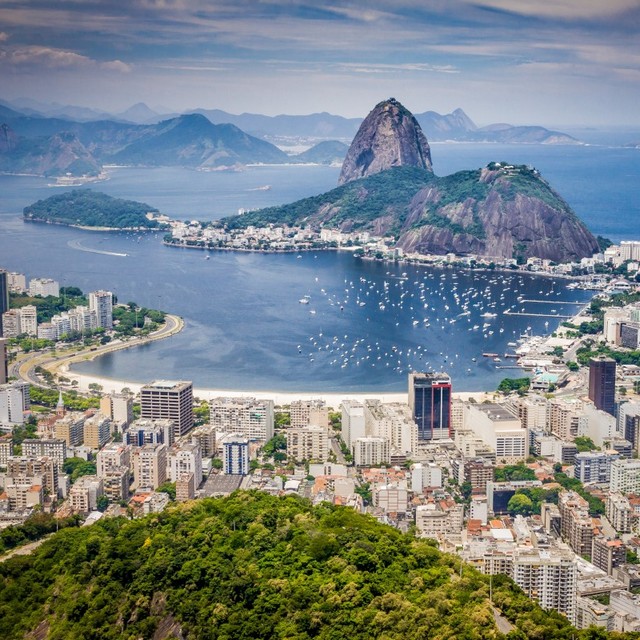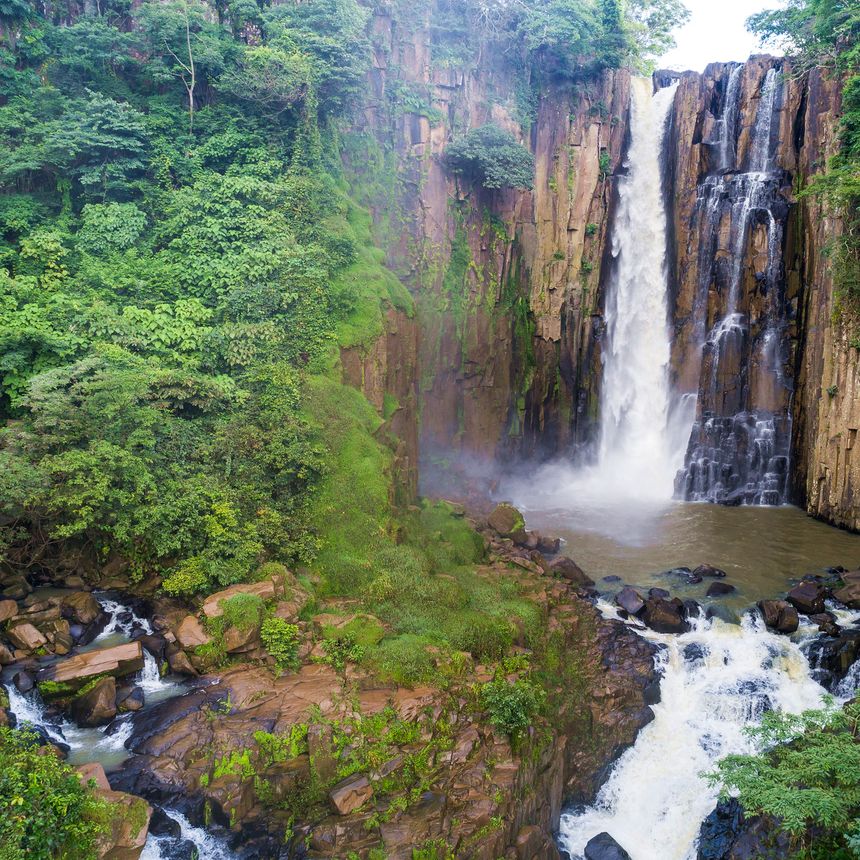Capoeira, samba and Pelé. Three words which can only mean one thing: Brazil. There is one other thing these three words have in common, though, and that is their African heritage. As a colonised nation, Brazil received the most African slaves of any of the countries in the Americas, and is currently the world’s second-largest black nation. However, black culture and history have for a long time been obscured and derided. It is rather shocking to consider that Brazil was the last country to abolish the slave trade, in 1888; less than two lifetimes ago. In spite of this racial division, African culture has become an ingrained part of Brazil as we now know it. In the 17th century, the Jesuit preacher and missionary, Frei Antonio Vieira, said that Brazil had “the body of America and the soul of Africa”. This has never been more true, as the Afro-Brazilian community based in the north-eastern part of Brazil undergoes an incredibly rich and empowering revival.
When you think of Brazil, you might imagine scenes of people kicking and flipping gracefully through the air in loose white trousers. Capoeira is a game, a martial art and a dance originating in 16th century Brazil. The history of this art form is mysterious due to its historically clandestine nature, however, it is believed to have been developed by African slaves who were not permitted to practise fighting, self defence or their own dance traditions. Capoeira gave them the perfect cover; whilst the rhythm of capoeira reminded them of home, it also provided an opportunity to practise self-defence and a chance to level the playing field. Although capoeira once went unnoticed by colonials, it wasn’t long until this too was taken away from afro-descendents and capoeira became illegal and punishable in 1890. Those who continued to practice capoeira risked being killed or having their Achilles tendon severed. Despite this, capoeira survived near extinction, and we have Mestre Bimba to thank for starting the first capoeira school in 1932 in Salvador, after convincing Brazilian authorities of its cultural value and its role as a tradition of interest to visitors. Capoeira is now known and loved worldwide, and visitors are consistently impressed and mesmerised by the creative, powerful and rhythmic quality of this art form.
Although African culture is often seen as an ‘ethnic’ or ‘exotic’ part of Brazilian culture, Africans represented the vast majority of the population when the country was founded, with around 5 million Africans in comparison to 600,000 Portuguese. It is of course true that the Portuguese came as colonisers and the Africans as slaves, but this still paved the way for a significant African cultural contribution. In fact, the beat that pulses through Brazil’s veins and the dance that brings the streets to life are directly influenced by African culture; the African-originating samba is a music style and dance that embodies Brazil’s lively and vibrant culture. Originally known as samba de morro, or ‘samba of the hill’, referring to the favelas on Rio’s hillsides, samba is the music of the common people and is a source of great pride for many African descendants because of its origins in the traditions brought to Brazil by their ancestors.
Like many cultural expressions of the ‘colonised’ populations throughout history, samba was once seen as barbaric and unseemly. Although it is hard to believe, what is now seen as the national music and dance of Brazil was the subject of police oppression, prohibition and punishment throughout the 19th century. It wasn’t until the beginning of the 20th century that samba became accepted, and until the 1930s that the tradition of samba parades began, thus creating the internationally renowned Carnivals that take place in Rio de Janeiro and Salvador, amongst other cities. Carnival is a great example of colonisers adopting elements of the traditions of those they have colonised. From the Latin ‘Carne vale’, meaning ‘farewell to the meat’, Carnival was originally a festival for eating amply before fasting for the Catholic tradition of Lent. Nowadays, although it is still a Catholic event, it is probably more well known for the glittering, feather-bearing, bikini-clad samba girls strutting down the streets of Rio to the beat of the tambourines, snare drums and whistles.
Talking about celebrations, there is perhaps nobody more celebrated in Brazil than Pelé, one of the greatest footballers the world has ever seen. Nicknamed “The Black Pearl”, he is an important and rare representation of the predominant black population of Brazil, a proportion that extends to 80% in the north-eastern state of Bahia. Known as the “terra da felicidade”, Bahia, and north-eastern Brazil in general, is recognised as a hub of African heritage, creating a rich juxtaposition of African traditions in a Portuguese colonial setting. Capoeira enlivens the European-style plazas while alluring Afro-Brazilian street food, such as the bean fritters known as acarajé, spice up the streets outside colonial-style houses.
Despite a difficult past and, for many, a difficult present, the contribution of African culture to north-eastern Brazil is undeniably a rich and positive one. Salvador da Bahia, once the capital of Portugal’s Latin American endeavours, is now the centre of the Afro-Brazilian community, and is a must-visit in Brazil. Drums, festivals and Candomblé ceremonies light up the city, with a backdrop of golden churches and colourful colonial buildings. Within the region are many practitioners of the Candomblé faith. Literally meaning ‘dance in honour of the gods’, Candomblé is based on the West African traditions of the Bantu and Yoruba people, but with elements of Catholicism, demonstrating the cultural fusion of African and European cultures. The religion was born out of prohibitions on African slaves’ spiritual beliefs, leading to the necessity to create new forms of worship that could be practised while maintaining the appearance of following Catholicism (the religion forced upon them). Candomblé is the main African-born practice to have remained in Afro-Brazilian culture, despite the efforts of church leaders and slave owners to erase it upon learning of its existence. It was only in the 1970s that the persecution of Candomblé practitioners came to an end, when a law requiring police permission to hold public Candomblé ceremonies was finally terminated. The ceremonies typically involve music and dance, and women, who are regarded as “mothers of the holy one”, often spiritually manage the services, making Candomblé a matriarchal religion. The increasing number of practitioners of Candomblé represents the revival of Brazil’s African roots. Along with samba and capoeira, Candomblé is a symbol of the resurrection of a lost cultural identity.
What was once the land of the colonisers is increasingly becoming the land of the colonised, with the richest and most well-known aspects of Brazilian culture being attributable to the Afro-Brazilian community. For a fascinating and memorable voyage into the Afro-Brazilian culture at the origins of Brazil, a trip to the North-Eastern region offers an exploration into an authentic and unique corner of the country.
Check out our tours with these unique experiences below
Prefer to do a tailor-made itinerary where you can choose your unique experiences and build your perfect trip?
Click here to contact us today.

